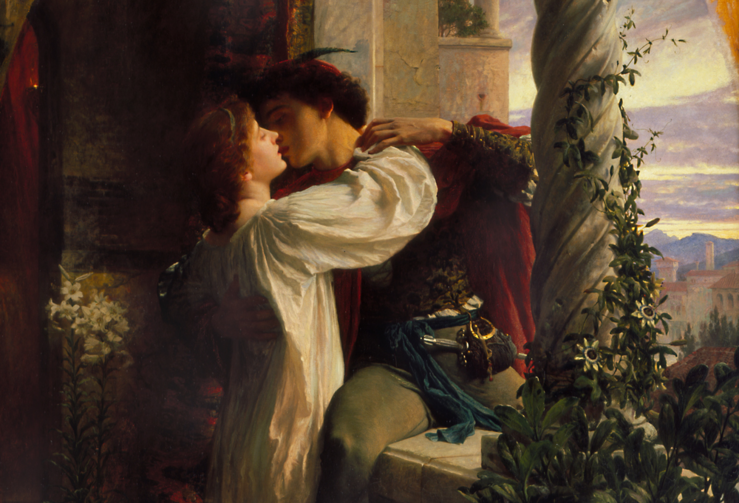“She’s fair I love.” Do you recognize the lover speaking? And hasn’t his inamorata vowed herself to chastity?
She hath, and in that sparing makes huge waste;
For beauty starved with her severity
Cuts beauty off from all posterity.
She is too fair, too wise, wisely too fair,
To merit bliss by making me despair.
She hath forsworn to love, and in that vow
Do I live dead, that live to tell it now (1.2. 203, 215-220).
If you recognize Romeo, you are right. But he is not speaking of Juliet who “doth teach the torches to burn bright!” No, at the opening of the play, he is enraptured by fair Rosaline. That is the problem with the human heart. It burns ardently but not all that faithfully. Without tending, its embers chill and collapse.
The human heart burns fiercely but not all that faithfully. We need God’s grace to change.
We have fierce hearts but fickle wills. You might say that we are scattered souls, with each other and within ourselves. The ancient sin under which we live keeps the human heart from gathering itself up and giving itself totally to another. We want that; we just cannot will that. Unlike God, who simply is the all-consummate love that gives, we must be both determined and graced in order to love faithfully. Love is a resolve we must renew each day.
We ought to remember this during these days in which we promise that, once life returns to normal, we will live differently, more deeply. The human heart burns fiercely but not all that faithfully. We need God’s grace to change.
“Were not our hearts burning within us
while he spoke to us on the way
and opened the Scriptures to us?” (Lk 24:32).
The Road to Emmaus is an Easter story. Like those two disciples, our hearts burn fiercely when they are united to the risen Christ. But how do we keep them fervent? That is why the Road to Emmaus is also a story of Eucharist. On a Sunday evening, the risen Christ, the one who sets hearts aflame, is encountered in the proclamation of the word and in the breaking of the bread. Christ died once for all, yet the risen Christ repeatedly receives his discouraged and exhausted disciples. He nourishes them with the gift of Eucharist.
One of our foundational sacraments we never repeat; the other we ever renew. We do not repeat baptism because, once having claimed us as his own, Christ remains forever faithful. His decision for us in baptism counts even more than ours for him.
We repeatedly celebrate Eucharist, his continuing presence among us, because we must be renewed in him. His is the faithful, fierce heart that burns upon the altar. Ours, the hearts needing to be awakened and warmed in his.










